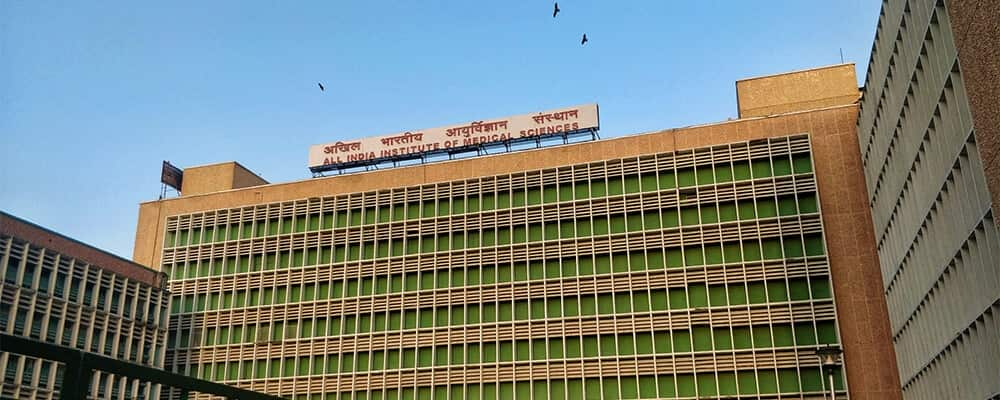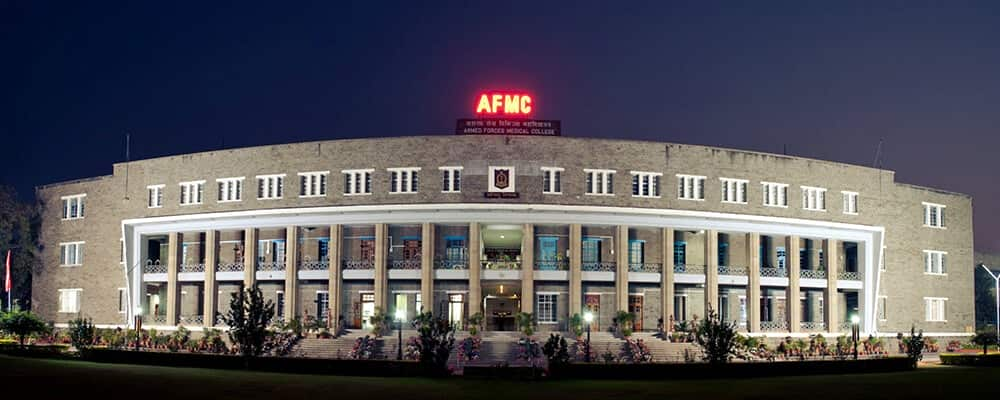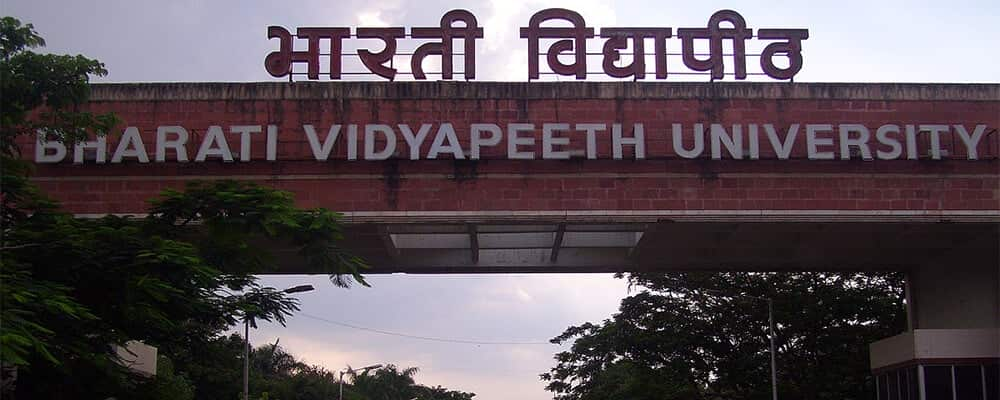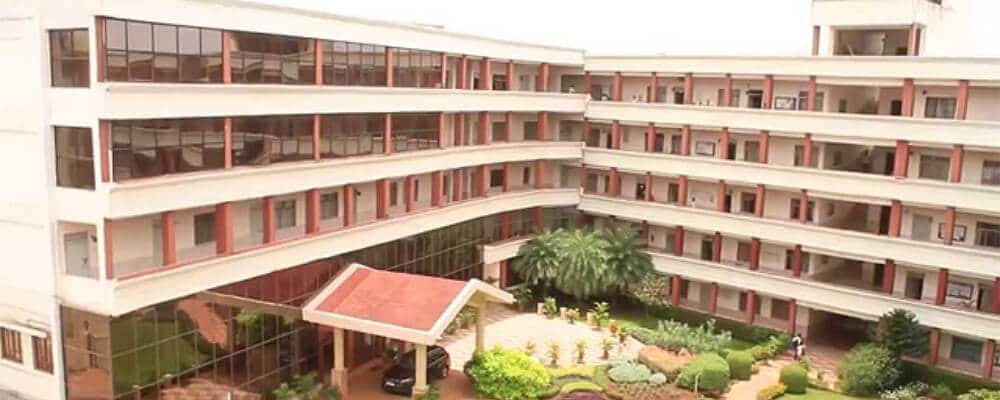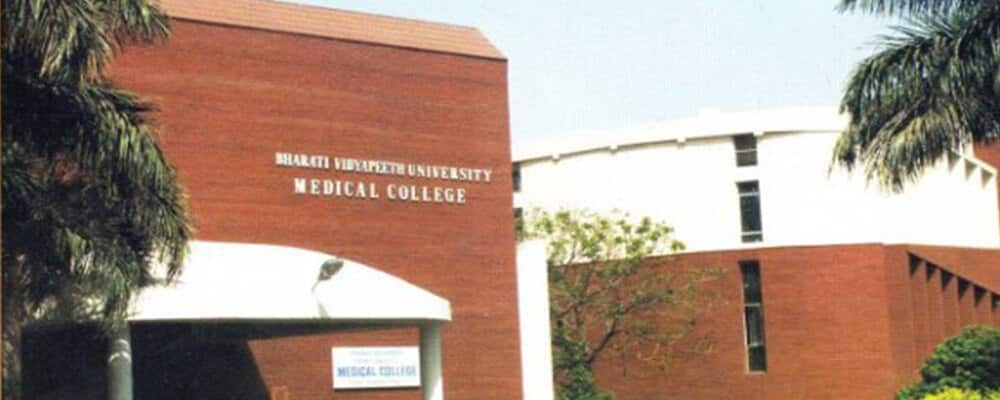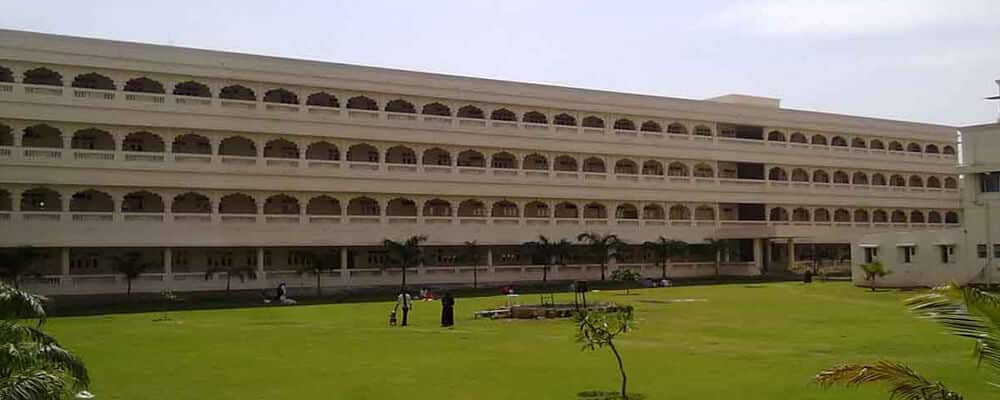
Study MBBS Course in Austria
MBBS in Austria: Quick Highlights 2022
A complete overview of studying medical course in Austria:
Course Intake | September - October |
MBBS Duration | 6 Years with internship |
Basic Eligibility | 50% In 12th - PCB (Physics, Chemistry, Biology) |
NEET Entrance Exam | Yes |
IELTS & TOEFL | Yes |
Minimum Course Fee | 15,00,000 INR |
Maximum Course Fee | 80,00,000 INR |
Cost of Living in Austria | 300$ - 350$ Per Month |
Medium of Teaching | English & German |
University Recognition | NMC, WHO, FAIMER, UNESCO, Ministry of Education (India) |
Top Medical University | The Medical University of Vienna |
Benefits of Studying MBBS in Austria For Indian Students
Studying medicine in Austria is an excellent choice for Indians due to following benefits:
The curriculum of the MBBS course is informative & practice oriented in Austria.
The course is carried under instruction of qualified & experienced faculty members.
Learn German after admission without clearing the entrance as a prerequisite.
English language is used for the training program of medical courses in Austria.
No charges of capiration and donation fees are required for studying in Austria.
Tuition fees of the courses charged by medical universities in Austria are economic.
Scholarship opportunities are offered by Austrian govt for international students.
Installation facilities are available that include EMI services as per semester.
Austria has ranked in top 10 world peaceful and safest countries in the world.
Doing Job is also allowed by the govt for foreign students during their studies.
Qualification Criteria For MBBS Admission in Austria
Following eligibility criteria is considered while accepting the applications of the admission:
Students of science stream with minimum of 50% score in PCB (Physics, Chemistry, & Biology) subjects are applicable for the admission.
The eligible age of the candidate should be between 17 - 25 years old.
NEET score is mandatory for the selection process for MBBS studies in Austria.
All legalized documents with application form are required for the admission process.
Confirmation letter from the faculty of medicine of respective college/university.
Admission Process For MBBS Course in Austria
Here are the steps involved in the admission process for medical course:
Step 1: Fill up the online application form of the respective university.
Step 2: Submit all the documents with the form after legalization & translation.
Step 3: Pay the amount of tuition fees after the confirmation of admission.
Step 4: Start applying for student’s VISA after organizing relevant documents.
Step 5: Get ready to fly to Austria once all the processes finish successfully.
Documents Required For Students to Study in Austria
Following documents are essential for medical admission procedure in Austria:
Duly filled online application
A valid passport of the candidate
Few passport size photos (3cm x 4cm)
School leaving certificate (SLC)
A proof of purpose stating reason to stay in Austria
A birth certification
Certificates of English test (IELTS/TOEFL)
Certificate of transfer from previous school/college
Original marksheet of 10th & 12th grade
Certificate of code of conduct.
National ID proof of the student
A certificate of medical fitness
Non criminal certificate
A legalized student’s VISA
Bank statement of the guardians/parents
Medical Education System in Austria
Check out these details about the system of MBBS education in the universities of Austria: The medical curriculum in Austria is a combination of theoretical and clinical practices. In every module, students learn different components with its function as well as common diseases and therapies.
A course called ‘Lines’ is conducted throughout the year that focuses on clinical skills.
PBL (Problem based learning) & CBL (Case based learning) training methodologies.
Third phase of the program (sem 9-12) is centralized on intensive clinical training.
Student's contact with the patients starts right from the third semester itself.
Clinical clerkship has the duration of 12 weeks in the span of last semester.
Dividation of the phases of medical program is as follows:
Phase 1 is for two semesters.
Phase 2 is for six semesters.
Phase 3 is for four semesters with internship.
MBBS in Austria - Academic Calendar 2022
Notice down the important dates for admission of MBBS course in Austria:
| Events | Dates |
|---|---|
Application Date | February |
Last Date To Apply | June/July |
VISA Approval Date | August/September |
New Session Start Date | Septmber/October |
Recognition of MBBS Universities in Austria
Following is the list of medical councils that gave recognition to the Austrian Universities:
National Medical Commission (NMC)
World Health Organization (WHO)
United States Medical Licence Examination Test(USMLE)
United Nations Educational, Scientific and Cultural Organization(UNESCO)
Ministry of Education, India
Hostel & Accommodation Facility in Austria
Specifications about the hostel arrangement where students live during studies in Austria: All the medical universities located in Austria which have an approval from NMC offer the services of inbuilt accommodation for the international students.Following services are the part of hostel available in Austrian universities:
Clean and ventilated rooms - Single or shared
Shared washrooms with Geyser installation
High speed wifi connectivity and modern IT support
Furniture consists of bed, tables, wardrobe, study table, etc.
Room appliances - Heater for winter relief & Geysers
On campus canteen with Indian mess (Veg available)
Housekeeping and laundry services (Extra payment)
Separate gases for self-cooking in shared kitchen
Gaming zone & T.V in recreational areas
A.C facilities and central heating in the hostel room
Hostel wardens are appointed for maintenance
Strict rules and regulation policies and penalties for violation
Documents Required for VISA Acquisition for Indian Students
The list of documents required for the VISA procedure are given below:
Online application of the admission
Letter of confirmation (Invitation Letter)
Few passport-size photos
Valid passport of the student
Confirmation of accommodation arrangement
Proof of economic capacity (Bank statement of 6 months)
International Health Insurance certificate
Records clearance from criminal cases
Note:
All the documents must be translated & legalized in German language.
For non-EU students, if the course duration exceeds 6 months, then residence permit is required to stay in Austria.
Safety Index of Austria
Austria is one of the safest european countries for travelling and education:
As per the survey of Global Finance Safety Index Score (2019) - Austria is in the top 5 list of world’s most peaceful and safest countries with number 5 position
| Rank | Nation | Global Finance Safety Index Score |
|---|---|---|
1 | Iceland | 6.16 |
2 | Switzerland | 7.01 |
1 | Finland | 7.04 |
1 | Portugal | 7.07 |
5 | Austria | 7.08 |
Cost of Living in Austria for Indian Students
We have given average monthly expenses required for Indian students in Austria:
| Particulars | Amount (USD) | Amount (INR) |
|---|---|---|
External Accomodation | 800 | 56,000 |
Food (Monthly Cost) | 300 | 21,000 |
Transportation (Pass) | 60 | 4,200 |
Monthly Grocery | 100 | 7,000 |
Basic Amenities | 100 | 7,000 |
Total Monthly Expenditure (Avg) | 1360 $ | 95,200 INR |
Note: 1$ = 70 Rs. (for calculation purpose)
About Austria
Read some interesting things about Austria: A typical perception of Austria is associated with crisp fried schnitzel, sugary strudel, or it’s symphony of classical music. To get your mind beyond this conventional picture, keep reading to explore more about the country.
A survey shows that Vienna, A capital city of Austria has the highest quality of life in the world. The stability of the country can be projected throughout it’s politics, healthcare, food, culture, education, crime, transportation, crecration, etc. Situated alongside Germany, the place is environment-friendly as it recycles 63% of the waste.
Austria is the origin of consequences that lead to the first world war, provided the fact that Hitler once lived here when he was rejected from the Academy of Fine Arts in Vienna. Apart from these historic and cultural attributes, experiences of living in Austria are well received by the international students studied here.
Religion | Roman, Cathelic, Chrsitrian |
National Currency | Euro |
Capital City | Vienna |
Rate of Exchange (Dec 2021) | 1 Euro = 84.80 INR |
Population | 88,06,000 |
Official Language | German |
Climate | 27°F to 79°F |
Time Difference | 7 hrs 29 min behind of India |
MBBS in Austria: Tuition Fees for 2022
There are total four NMC approved universities that offers MBBS degrees in Austria:
| Name of the universities | Tuition Fees (USD) | Tuition Fees (Rs.) |
|---|---|---|
Medical University of Vienna | 950 USD | 66,500 Rs. |
Medical University of Graz | 1677 USD | 1,17,390 Rs. |
Medical University of Innsbruck | 1171 | 81,970 Rs. |
Paracelsus Private Medical University | 12500 | 8,75,000 Rs. |
Note:1$ = Rs. 70 (for calculation purpose)
Ranking of Top Medical Colleges in Austria
Refer the national & global ranking of all the four medical universities in Austria:
| Name of the universities | Tuition Fees (USD) | Tuition Fees (Rs.) |
|---|---|---|
Medical University of Vienna | 9 | 1106 |
Medical University of Graz | 11 | 1340 |
Medical University of Innsbruck | 26 | 3362 |
Paracelsus Private Medical University | 41 | 4860 |
Note: 1$ = 70 Rs. (for calculation purpose)
A Detailed Course Syllabus of MBBS in Austria
A complete syllabus of MBBS is given below that consist of 6 years including internship:
Phase - I[2 Semesters]
1 Sem | Health & Illness | The human Body | From Molecule to Cell | Social Skills | First Aid | Problem Based Learning (PBL) |
2 Sem | Functional System & Biological Revolution | Genetics, Molecular & Cellular Communication | Environment, Family, and Society | Health Assessment | Problem Based Learning (PBL) | Optional Subjects |
Phase - II[4 Semesters]
3 Sem | Science & Medicine (SSM 1) | Disease: Origins & Symptoms | Diseases: Manifestation & Perception, General Pharmacotherapy | Medical Interview A | - |
Basic Medical Skills | Problem Based Learning (PBL) | Optional Subjects | - | - | |
4 Sem | Endocrinology, and Metabolism | Cardiovascular System and Blood | Respiratory System | Physical Examination Techniques | - |
Clerkship Preparation | Organ Morphology 1 | Case Based Learning(CBL) | Optional Subjects | - | |
5 Sem | Nutrition & Digestion | The kidneys & Homeostasis | Sexuality, Reproduction, Pregnancy, & Birth | Infants, Childhood, Adolescence | Case Based Systel (CBS) |
Organ Morphology II | Specific Examination Techniques I | Resuscitation Techniques I | Clerkship | Optional Subjects | |
6 Sem | Medical Research Methods - SSM2 | The Skin & Sensory Organ | The Brain & Nervous System | Neurological Status | Medical Interview B |
Orphan Morphology III | Clerkship | Optional Subjects | - | - | |
7 Sem | Public Health | Location, Performance, & Pain | Surgery | Dermatology and STI | Internal Medicine |
Specific Diagnostic Skills | Basics In Sonography | Specific Examination Technique II | Optional Subjects | Clerkship | |
8 Sem | Psychological Functions In Health Disease, Medical Interview C | Project Studies (SMM - III) | Integrated Clinical Practical Preparation | Specific Examination Techniques III | Resuscitation Technique II |
Clerkship | Optional Subjects | Diploma Thesis A | - | - |
Phase - III[6 Semesters]
9 Sem | Neurology | Psychiatry | Scientific Methods [SSM 4] | Pediatrics | Interdisciplinary Case Conference |
10 sem | Gynecology & Obstetrics | Ophthalmology | Otolaryngology | Emergency Medicine Intensive Care | Diploma B Thesis |
Clerkship | - | - | - | - | |
11 + 12 Sem | Internal Medicine | Surgery & Preoperative Discipline | Elective Discipline | Return Week | - |
Medical Courses Offered in the Universities of Austria
These are the courses related to medicine available for studies in Austria:
General Medicine (MD/MBBS)
Pharmacy
Dentistry
Nursing
Surgery
Career Opportunities After Completion of MBBS in Austria
Students have all chances to work or study anywhere in the world after studying in Austria:
Preparation of medical license examination is provided in Austrian colleges
Coaching for PLAB, USMLE, NEXT, etc is available for the students studies.
Chances for students to opt for a postgraduate degree in any country.
Indian students can return to practice in Indian after clearing NEXT exam.
Job Opportunities For International Students Studying in Austria
Most of the MBBS aspirants usually fo for post graduation right after getting bachelors degree, however if that’s not the case, then you have abundance of woking scope in Austria:Students have all chances to work or study anywhere in the world after studying in Austria:
Students can begin their practice in pvt r govt hospital as Doctor.
Students can also work as a lecturer in public/private institutions.
Other options include pharmaceutical sector, R&D, Pathology, educator, etc.
Note: Students of bachelor degree program can only work up to 10 hrs a week while students enrolled in masters can work up to 20 hrs a week.
MBBS in Austria: Important FAQs
The duration of MBBS course in Austria is for 6 years that includes a total of 12 semesters.
The minimum age of the students to take admission in Austria should be 17 & the maximum age limit is 25 years.
MBBS degree acquired in Austrian universities is legitimate in India, however graduates will require to qualify NEXT exam to legally practice in India.
Entire course of medicine at Austrian colleges has English medium language in it’s curriculum.
Students can opt for a Postgraduate program in any international college or Austrian colleges also offer P.G options. If you crack the USMLE exam then you can also pursue P.G in the USA.
Indian food is available in some local restaurants situated near the campus. Some colleges also have appointed Indian cooks to serve desi dishes for Indian students.
Yes, Most of the faculties in Austrian universities provide full coaching for the preparation of USMLE examination.
Students can take on part-time work in Austria during studies. They can work up to 10 hrs a week if they have enrolled in bachelor’s program & 20 hrs a week for masters program.
There are too many banks & financial institutions that grant loans for educational purposes if you want to study in Austria or anywhere in the world.
